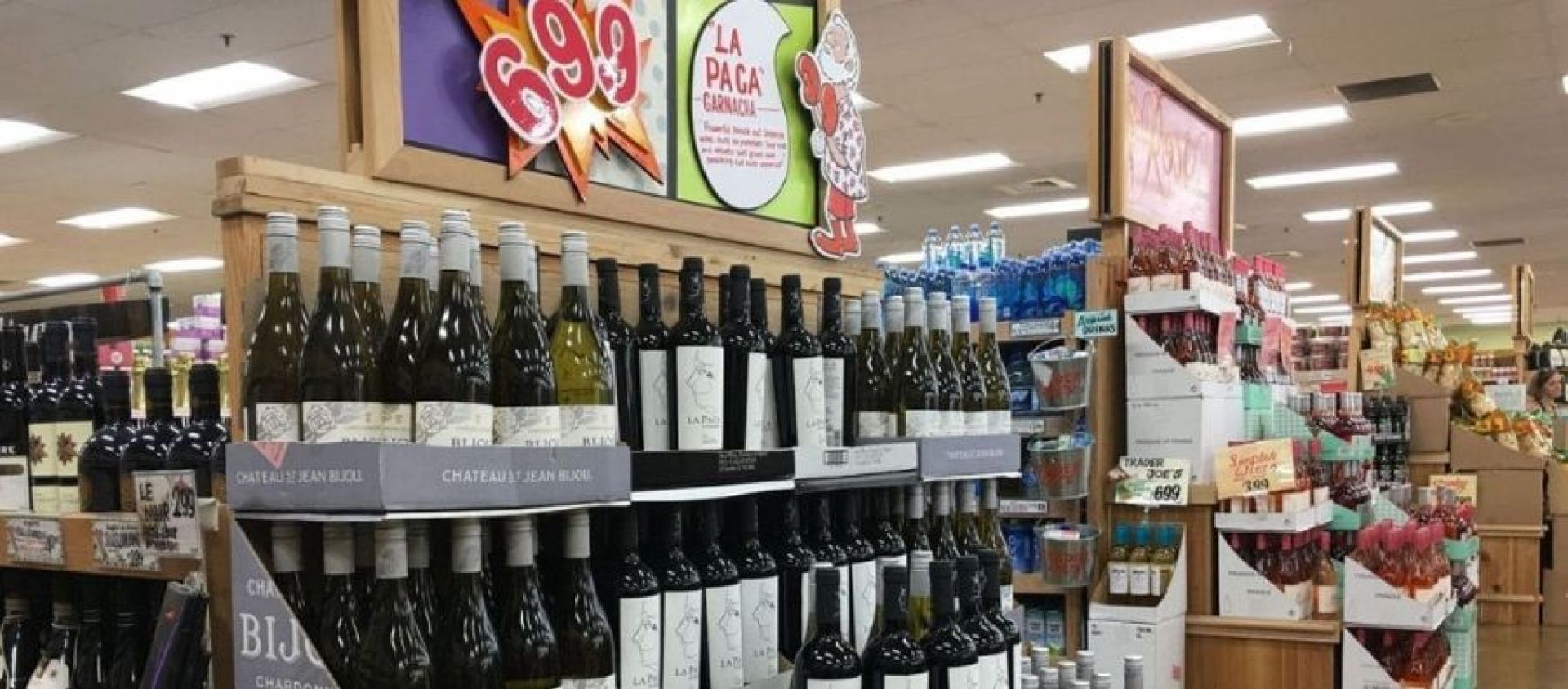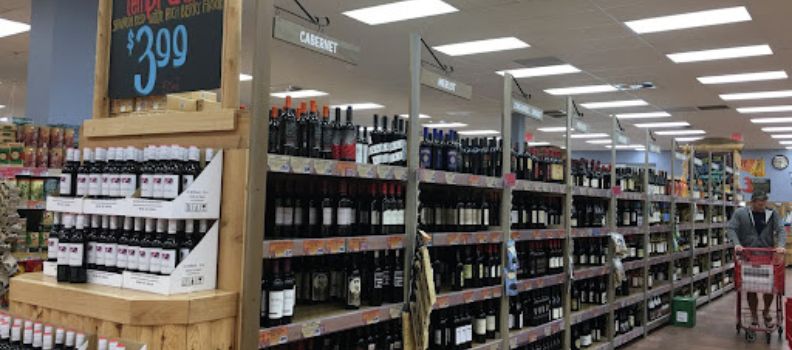
News
Merchandising: Creating Your Own Profit Footprint
Merchandising for most small companies is done after the retail buyer's attention authorizes the brand’s distribution when instead it should be part of your sell-in strategy and marketing plan/budget.
Merchandising for most small companies is done after the retail buyer's attention authorizes the brand’s distribution, when instead it should be part of your sell-in strategy and marketing plan/budget. Chains that you think have a great deal of floor space like Albertson’s, Kroger, Wal-Mart, Costco, HEB, Jewel-Osco, and Publix, already have floor plans and schematics that are bursting at the seams for the larger, mega-brand suppliers. Brand owners who present new products or concepts to the likes of Kroger and Wal-Mart, need to consider in your sales presentation low-cost merchandisers as part of the brand marketing plan. These merchandisers create incremental space for the chain store buyer.
Creating secondary displays is an important profit center for small companies. Here are a few methods of how to present your space plan and profit footprint to the retail chain buyer:
- Target a failing competitive brand — sometimes the best method to find your brand’s competitive space is to eliminate a competitor. If you research IRI or Nielsen Scantrack data, many times you can have a brand that is over-spaced for the number of retail turns it is experiencing. You can point this out to a chain buyer and they can research their own internal data and target this brand for an SKU reduction during the spring or fall reset process.
- Target a particular space on the floor—by walking the store, you may be able to locate a spot or space that is already available in the beer, wine, and spirits department. It may require shifting a competitive display or turning some packaging sideways to make room, but it may be the best place for your brand to maximize its competitive footprint.

Image: Trade Joes Wine Section, Store in San Francisco
- Target a space out of the department— sometimes stores will allow you to display merchandise out of the department. For craft beer and wine, many times the buyer will allow displays in the meat, deli, or bakery areas. Attempt to tie in a co-branded display with products that are in that department. For example, if you’re an Italian Wine, Carapelli olive oil and focaccia bread, or a Ferrero Rocher Italian chocolate Easter pairing might be just the ticket to landing an excellent spot in the deli section. Creating the display unit for both brands might make it an automatic “yes” from the chain buyer!
The strong visual impact of the secondary placement comes essentially from its colored exterior with the brand’s distinctive icons embossed on the side panels and the eye-catching brand logos. These types of displays and packaging are a perfect match for each other here. The high-quality processing not only gives the display an attractive look but also ensures the necessary stability as the display holds enough cases of product to pay for the total cost.
[[relatedPurchasesItems-34]]
Here is a list of the various types of displays, bins, and merchandising/POS pieces that both Craft Brewers and Small Wineries can consider when approaching small, medium, and large size chains:
- Small Bin Displays—small Craft Brewers and small wineries have limited capital to produce elaborate displays, but cardboard displays can be effective and efficient when it comes to cost. Most of these cardboard displays hold 4-6 cases of product, and unless they are die-cut for the customer, don’t take up that much space and cost the Brewery/Winery less than $20.00 each with setup charges.
- Medium-Size Displays—the size of the display is often a direct result of the space being offered. However, sometimes the brand owner can design the merchandising piece to a size that fits the brand’s image. These may be more permanent in structure, are definitely more expensive, hold more product and can even resemble furniture so they don’t take away from the store’s décor, and in fact, enhance it. Distributors will invest in good merchandising pieces with the craft brewer and the small wineries. They need to know well in advance what the strategy is, what their cost will be, and when the displays will be available. Distributors will buy more than allocated if they think the piece has a chance to go more places than just the chain it was designed for.
- Large-Size Displays and Themed Permanent Pieces—the larger branded companies have the ability and the marketing budgets to maximize a brand’s space and create dealer loaders that guarantee space. This is something the smaller craft brewer and the smaller wineries simply cannot afford to do on a large scale basis, but they can buy 5-10 pieces and pay more per piece, and maximize their sales in one local chain. Now, why should a smaller brewer or winery consider this? Because if they are successful with them, you can take your brand’s results in the smaller chain to a much larger chain and sell them on the idea! Here are a few examples of merchandising that not only maximizes the space, but emphasizes the brand’s identity, has dual purpose use, creates the brand image that the marketer is looking for, and sets the brand apart from anything else out there:
- Themed POS and Merchandising—one of the most versatile pieces a small brewer or small winery can produce is those associated with the theme of their brand. Themes can follow several different paths, including:
1. Holidays (Valentine’s Day, St. Patrick’s Day, Mother’s Day, Memorial Day, Father’s Day, 4th of July, Halloween, Thanksgiving, and Christmas).
2. Themes for parties or promotions (Examples include Tiki Bars, Nautical Themes, King Gambrinus Promos, German/Oktoberfest, Italian, Irish, Sports Themes, Sales Promotion Ideas, and Exotic Trips).
Summary of the Merchandising Craft
The best craft beers and artisan wines in the world deserve permanent “off-the-shelf” placement in an elegant fashion. There is no doubt that wood adds an element of permanency and class. Carved, contoured, or crafted into fine furniture or striking point-of-purchase displays, certainly draws the eye of the consumer.
While cardboard is an affordable method, wood, metal, and other fine materials like molded plastic and chalkboards showcase products that deserve a quality presentation. Wine, craft beer, and craft spirits are just part of this marketing and merchandising strategy. From the initial design, to manufacture and assembly, finishing, graphic application, and packaging, the handcrafted POS maker employs his craft much like a Craft Brewer and an Artisan Winemaker.
In many of the photos within this article, the displays turn heads, focus attention, and draw potential customers to your brand’s displays. POS that is designed for a given brand, with emotive icons and sometimes motion, motivates consumers to create a buying response and close a sale for the Brewer and/or Winery. The rubber meets the road when the POS actually delivers the results that were anticipated. Distributors and retailers alike embrace good point-of-sale and will put it up because they strongly believe in the power of attracting traffic and creating impulse buys for premium brands.
Permanent shelf space is an investment for the Craft Brewer, the Artisan Winery, and the Distributors who execute the brand’s Marketing and Merchandising strategy. The return on investment is staking out some permanent floor space that other competitive brands highly covet, but have not successfully landed. The profitable footprint that each brand lands in a high-traffic grocery, warehouse club, drug store, c-store, or liquor store pays long-term dividends by evoking quality and value, at premium prices.
2022 USA Trade Tasting visitor registrations are now open. Every year, the USATT Show brings together sommeliers, bartenders, importers, distributors, retailers, and press professionals of the US wine, spirits, and beer industry in Chicago for 2 days of buying and selling, networking, and fun — all designed to help participants grow their bottom line.
Your conference tickets will include free breakfast, free lunch, and expo floor access to all the sessions on both days. This special offer ends on September 15.
Become a USATT exhibitor and grow your distribution in the USA. Meet importers, distributors, retailers and press. Get exhibitor information here.


